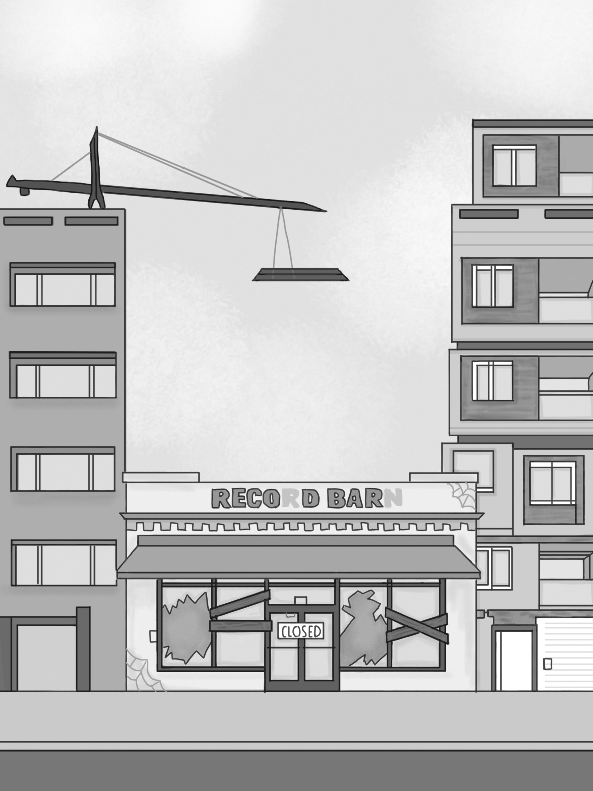Construction keeps the world turning, a city growing, a country developing. If a region must flourish, it must build for the private and public benefit. Amid ongoing development in the Bay Area, however, local businesses are being left behind in the process. Forced to suffocate under the housing industry, some establishments are being bought out or outsold and turned into construction lots for housing and office spaces.
The land that local businesses occupy is now considered more valuable than the businesses themselves. Rather than keeping the enterprises around, landlords and investors have severed leases and tore down buildings, pumping money into massive housing ventures instead to fulfill profits. As small businesses continue to close across the Bay Area, towers of condominiums and townhouses flood the streets, with the investors’ coffers filled with cash to buy out their valuable land. Like the 2006 housing bubble, many developers have taken advantage of the current housing market by employing certain properties as investment pieces on the greater economic chessboard.
Affordable housing in California is like toilet paper during the COVID-19 pandemic: scarce. High property values plague the state, preventing many from attaining a home. According to Redfin, a real estate company, and Forbes, a business magazine, the average median sale price for a home in California is $816,500 and $1.3 million in the Bay Area alone, which is far above the annual wages of an average worker. For reference, ZipRecruiter, an online employment marketplace website, puts the annual salary of a San Jose worker at $65,234. Rather than being seen as a tragedy, these prices are seen as a signal, a sign to build wealth and leverage these properties as a form of stock.
Local businesses thrive on a steady flow of customers to keep their doors open. When city officials and private developers commit to rezoning around the businesses, those customers go away. Take the Record Barn, a locally owned vinyl store, for instance. A thriving business in San Jose, it was forced to close as the surrounding structure was slated for office redevelopment.
In downtown Santa Clara, the Bowers Plaza and the nearby U.S. Auto Repair and Glass garage were once a part of Santa Clara’s business culture. Those properties, too, are slated for redevelopment, waiting to be transformed into a 60-unit apartment complex.
While more housing continues to be built, few businesses remain. Forced to drown beneath the weight of the capitalist venture, investors leverage these properties to capitalize off the current market craze. Rather than looking toward businesses, they look toward future homebuyers, hoping to turn a profit from those desperate for a home.
Although the necessity for affordable housing demands continued construction, there must be a fine balance between local culture and the city’s social responsibilities. Building more homes only goes so far when residents are unable to support their community through their goods and services. The shrinking number of enterprises only negatively impacts Santa Clara culture and harms the city budget.
In fact, Santa Clara themselves have acknowledged that they will be entering an $8.9 million shortfall for the fiscal year of 2024-2025. Focusing on the construction of homes to replace local enterprises prevents additional revenue from going into the city.
A city cannot be made solely of homes. Otherwise, it would be another typical suburban neighborhood. Urban re-developing should emphasize a focus on mixed-use development. This would allow for businesses and homes to coexist with each other, provided the rental prices are affordable. Focusing on empty lots and unused space rather than existing businesses would help provide a solution to the housing shortage.
Keeping a city strong means sustaining the foundations upon which it was built. Local businesses contribute to this premise through its monetary values and community culture. They are a lifeline to the city. Supporting local establishments supports the local economy and ensures that the moneybags of hungry developers don’t force them out.


